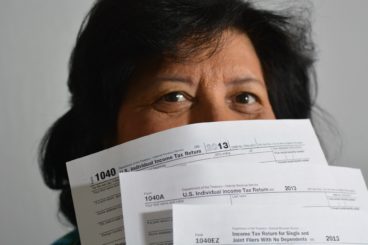
The tax bills currently being rushed through Congress are huge and complex. And the details keep changing. I am not a professional economist specializing on tax law, so I do not claim infallibility for my comments!
But some things are clear.
Some Facts
First, it is simply false to say (as President Trump often does) that the US is among the highest taxed nations. In fact, the US tax rate falls significantly lower than almost all other industrialized nations.
Second, in the 1950s when the US economy was growing faster than today, the top income tax bracket was 91% (not today’s 39.5%).
Third, the distribution of income and wealth is more lopsided today than at any time since 1928, just before the Great Depression. The richest 1% have more wealth today than the bottom 90%. In recent years, over 90% of all growth in income in the whole economy has gone to the top 1%!
Fourth, the bottom half of the US population has not benefited much at all in the growing economy in the last 40 years, and many have lost ground.
Fifth, both the House and Senate proposals would give the vast majority of the tax cuts to the richest Americans—the top 1% to 5%.
Sixth, both House and Senate bills would expand the federal deficit by at least $1.5 trillion in ten years. Virtually no respected economist believes the argument that the big tax cuts for the rich would grow the economy enough to avoid a huge expansion of the national debt—Republicans used to say they thought that increasing the national debt was a bad idea. And it is virtually certain that if the tax cuts add $1.5 trillion to the debt, politicians will soon argue that we must slash programs for poor people (in recent years, politicians have proposed big cuts in food stamps, Pell grants, Medicaid) to reduce the debt.
Basic Principles
Basic principles for changing the tax code should at least include these things:
- Provide better opportunity for the bottom half of society
- Foster a long-term sustainable economy
- Keep the tax code progressive—higher income people pay a higher percentage
Write Your Congressperson and Senators
I plan to write mine and urge them to do the following:
- Change their proposals so that the tax cuts mostly benefit the majority of Americans (especially the bottom 50%) rather than the richest 1% to 5%. It is flatly immoral to give another huge tax cut to the richest 1%!
- Keep (not abolish) the estate tax. Abolishing it would be a huge windfall for billionaires like President Trump.
- Keep (not abolish) the Alternative Minimum Tax which seeks to guarantee that wealthy people with vast tax exemptions still pay some taxes.
- Instead of lowering the top income tax bracket, add another top income tax bracket of 50% for people with taxable incomes of $2 million or more. (The Republican bill in the Senate would give a couple with a $10 million taxable income a tax cut of $130,000 a year!)
- Rewrite the child tax credit so it especially benefits lower income Americans. The Republicans want to expand it to $1600 from $1000. Sounds good…but it is not fully refundable. (If you do not owe federal taxes, a refundable tax credit means you still get the money). The Republicans want to make more rich people eligible so that a two-child family with income between $150,000 and $1 million would then get a new tax cut of $3300. But because the tax credit is not fully refundable, millions of poorer working families would only get an additional amount of $75 or less. Poorer families, not rich families, need an expanded (and fully refundable) child tax credit.
Ron Sider is the Founder and President Emeritus of Christians for Social Action.



One Response
Thanks for sharing your thoughts about this, it is important that we keep the tax code fair and help those who need it the most, and not just turn it into a giveaway for those with the most.